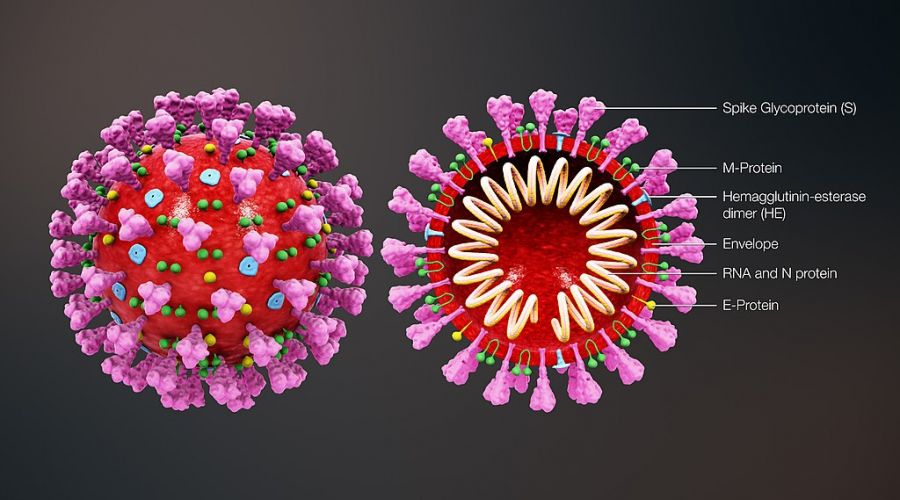
Picture credit: 3D medical animation still shot showing the structure of a coronavirus. Source: https://www.scientificanimations.com/wiki-images/
Dr Pradipta Biswas' team in India has created an app that shows the rate of spread of COVID-19 in different regions.
The app is part of our institutional effort to propose various solutions during the lockdown period as we have all been working from home since mid-March.
Dr Pradipta Biswas
Scientists based in a Gates Cambridge Scholar’s lab at the Indian Institute of Science have developed a new app which shows the rate of spread of COVID-19 across different regions.
The “COVID-19 Comparative Data Analytics” app provides a mathematical analysis which enables comparisons of the spread of COVID-19 between different regions and countries.
The app, developed as a remote collaboration by Dr Pradipta Biswas’ Intelligent Inclusive Interaction Design (I3D) laboratory, can be used to compare COVID-19 statistics across different countries and also provide state-level statistics for India.
It calculates the spread of the coronavirus based on the duration of spread and the rate of increase of cases. For India, it pulls data on the total number of deaths, the number of confirmed cases per day and the number of deaths per day from the Ministry of Health and Family Welfare’s “Covid-19 India” website. For other countries, it takes data from a GitHub site which tracks worldwide data from over 50 portals and sites, plus the Worldometer website which collates worldwide coronavirus figures.
It then applies a special “Knee Detection Algorithm” which allows it to show the rate of the spread for the disease across different regions. The shape of the graphs can be use to compare the spread of the virus at different stages and for different countries with respect to the average number of new cases and deaths. It can be used to undertake comparative analysis among countries, automatically detect and compare phases of spread across different countries and prevent spread by taking examples from other countries.
Pradipta [2006], who is Assistant Professor at the Institute’s Centre for Product Design and Manufacturing, says: “The app is part of our institutional effort to propose various solutions during the lockdown period as we have all been working from home since mid-March.”

Pradipta Biswas
- Alumni
- India
- 2006 PhD Computer Science
- Trinity College
Pradipta Biswas is an Assistant Professor at the Centre for Product Design and Manufacturing of Indian Institute of Science. His research focuses on user modelling and multimodal human-machine interaction for aviation and automotive environments and for assistive technology. Earlier, he was a Senior Research Associate at Engineering Department, Research Fellow at Wolfson College and Research Associate at Trinity Hall of University of Cambridge. He completed PhD in Computer Science at the Rainbow Group of University of Cambridge Computer Laboratory and Trinity College in 2010 and was awarded a Gates-Cambridge Scholarship in 2006. He undertook a first degree in Information Technology at the University of Kalyani and a master degree at the Indian Institute of Technology, Kharagpur. He conducts a course on Human Computer Interaction at Indian Institute of Technology, Mandi, guest lecture at Indian Institute of Technology, Madras and was a vice chairman of ITU-T Focus Group on Smart TV.












